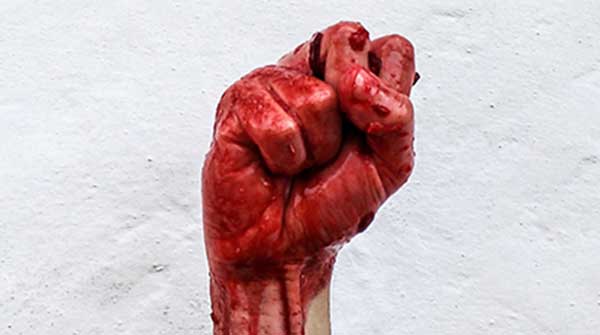 During the Cold War, we were told that our allies did nothing wrong and our enemies did nothing right.
During the Cold War, we were told that our allies did nothing wrong and our enemies did nothing right.
In the late 1970s, the Cambodian genocide was very well reported in the Western media. That was a good thing because Pol Pot and the Khmer Rouge were horrendous war criminals.
Yet, at almost the exact same time, we heard nothing in the media about a comparable bloodbath happening in the former Portuguese colony of East Timor. That was because Indonesia was responsible and Western countries were supplying them with weapons. Only after the Suharto dictatorship fell out of favour with the Americans in the late 1990s did the East Timorese experienced any relief from decades of genocide.
A number of scholars believe we’re entering a second Cold War and they may be right. We’re seeing the same type of finger-pointing, the same kind of hypocrisy in our foreign policy.
In February, legislatures in several Western countries, including Canada and the United States, labelled the treatment of the Uyghur and other Muslim minorities in China as genocide. In Canada, this declaration received unanimous support across party lines in Parliament.
While usually reliable organizations like Amnesty International and Human Rights Watch did call attention to the plight of the Uyghur, Western media has been airing numerous reports from far less credible and more sensationalist sources regarding this issue. Why would they do this?
| RELATED CONTENT |
 |
| Any violation of human rights is a crime against humanity By Gerry Chidiac |
| Standing on guard for human rights critical to a civil society By Constantine Passaris |
| Why Canada should be celebrated, not trashed By Mark Milke |
And why would the Canadian Parliament call the Uyghur situation genocide and say nothing about the unprecedented humanitarian crisis in Yemen, where 24 million people, including 12 million children, are in dire need of assistance? Even worse, how could Canada continue to sell military equipment to Saudi Arabia, the foreign power responsible for much of the suffering there?
In another case, Human Rights Watch refers to the Israeli treatment of the Palestinians as “crimes of apartheid.” Yet Israel remains one of Canada’s strongest allies and Prime Minister Justin Trudeau claims that we share a “commitment to freedom” with Israel.
When addressing global issues, there are indeed times when Canada can do almost nothing. In the case of the Uyghur, we can use diplomatic pressure, limit trade with China and put pressure on Canadian companies operating in China, but we can do little else.
We have much greater influence with our allies and countries that rely on our trade.
We also need to recognize that in many parts of the world, we’re part of the problem and these are the situations we need to do something about. Canada’s reputation in Latin America is now almost as bad as that of the United States. We refuse to regulate Canadian mining companies working overseas and many of them continue to soil our international reputation.
Canada once acted honourably and we can do so again. The government of Brian Mulroney was one of the first to boycott and sanction apartheid South Africa. They also chose to accept refugees from Central America while the United States continued to fight covert wars there. The government of Jean Chretien chose not to participate in the second Iraq War, a devastating conflict that endures to this day.
Even now, there are elected officials who clearly prioritize human rights; thus their support for the Uyghur makes sense. The Green Party of Canada and the New Democratic Party, for example, have also called for the cancellation of arms deals with Saudi Arabia and the recognition of the rights of Palestinians.
Today’s Liberals and Conservatives regularly stand in opposition to human rights initiatives. It’s therefore difficult to see their concern for the Uyghur as anything more than an effort to demonize the Chinese government.
Genocide is a legal term linked to a moral responsibility to protect people in grave danger. It should never be used for political gain.
Gerry Chidiac is an award-winning high school teacher specializing in languages, genocide studies and works with at-risk students. For interview requests, click here.
The views, opinions and positions expressed by columnists and contributors are the authors’ alone. They do not inherently or expressly reflect the views, opinions and/or positions of our publication.
© Troy Media
Troy Media is an editorial content provider to media outlets and its own hosted community news outlets across Canada.

